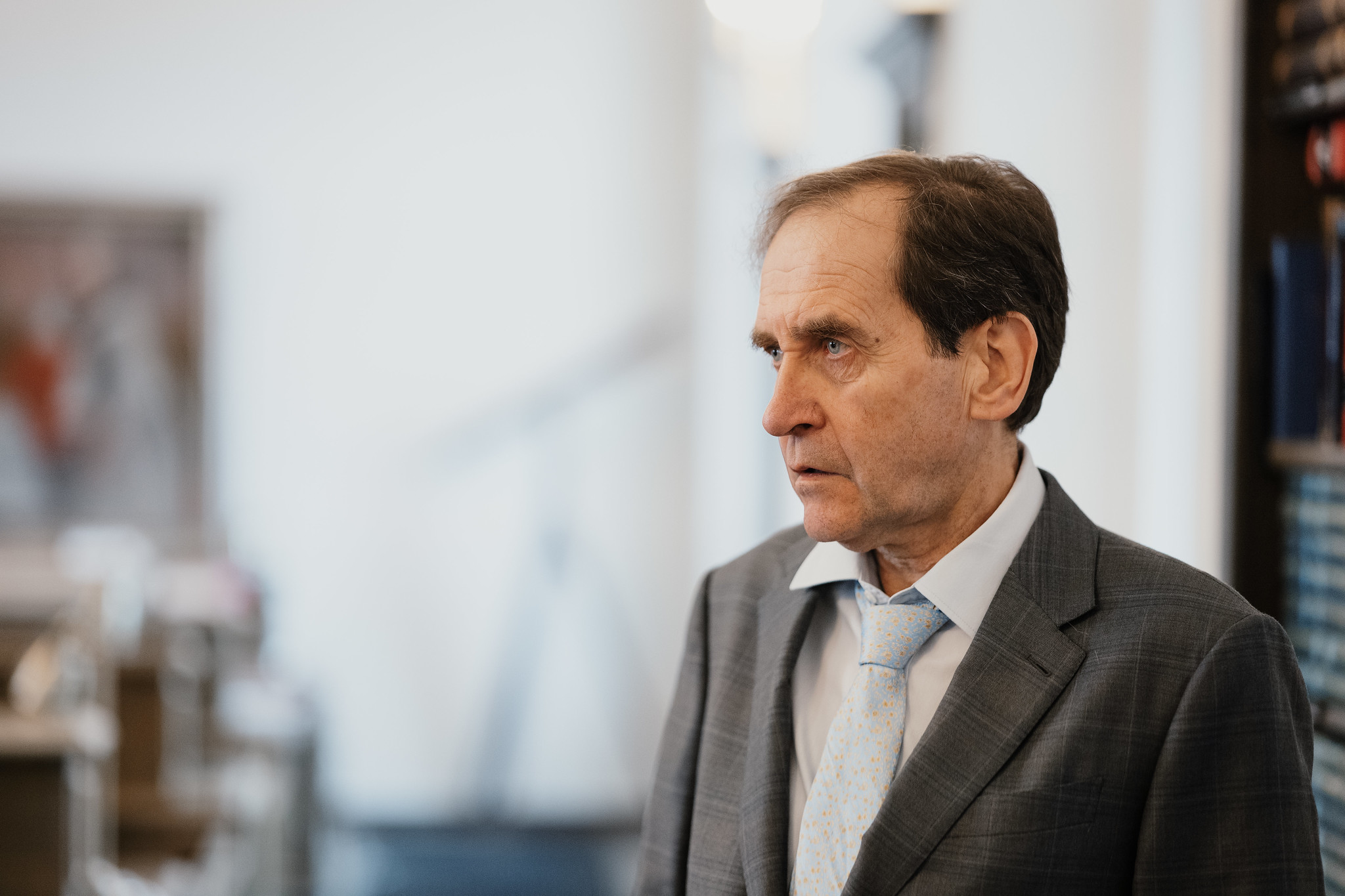Joint MIT-VU Conference Features Gediminas Juzeliūnas on Incomprehensible Quantum World

Without quantum physics, modern physics wouldn’t be possible. However, professor Gediminas Juzeliūnas from Vilnius University (VU), a specialist in this field, jokingly admits that this area – at least for now – cannot be understood. Yes, we can predict and observe quantum phenomena, but their causes remain beyond the boundaries of our understanding. This paradox will be at the centre of discussions at the international conference "Human and More-than-human Futures: Innovating Technologies for Coexistence" taking place October 9-10, and initiated by Vilnius University, Massachusetts Institute of Technology (MIT), and consortium partners.
The Complicated Quantum World
The MIT MISTI Lithuania conference, which can be boldly called one of the most important scientific events of this year, will bring together scientists from both Lithuania and around the world, as well as business and industry leaders for a joint dialogue about the challenges and opportunities posed by technological transformations. This is part of a strategic partnership between the Massachusetts Institute of Technology (MIT) and Lithuania's science, education, and innovation ecosystem.
The conference aims to foster joint dialogue about the challenges of technological transformation and to bring together MIT researchers, Lithuanian scientists, and representatives from business and industry in one place. During discussion sessions, questions related to quantum technologies, biotechnologies, generative artificial intelligence, the future of education, and cybersecurity will be addressed.
At the "Human and More-than-human Futures: Innovating Technologies for Coexistence", VU Distinguished Professor Juzeliūnas will deliver a presentation titled "Quantum Technologies and Cold Atoms". He jokes that he probably made a mistake by choosing such a topic, because speaking popularly on it is a real headache, as quantum physics is famous for its complexity.
"In classical physics, everything works much more simply. Let’s say you know that you have a ball of a certain weight, and if you throw it along a certain trajectory, it will fall in an easily calculable direction. These laws are so clear that you can even calculate the movement of a spacecraft that way. In quantum space, nothing like this would work – you cannot define the trajectory of a quantum particle because the Heisenberg uncertainty principle applies in quantum physics. There's even a saying that if you can understand a phenomenon with your mind, it means it's not a quantum world thing," says the scientist.
How to Speak Understandably About Incomprehensible Things?
"Human and More-than-human Futures: Innovating Technologies for Coexistence" will examine a plethora of complex and intricate topics. For example, how to create future technologies that adapt to the needs of both humans and nature, promoting resilience and harmony with our environment in the process. The conference is the perfect space to learn more about how world-class science can transform everyday life – from healthcare to the cities we live in, from education to climate change solutions.
Complex topics, such as quantum physics, constitute a significant part of that. Even if quantum laws cannot be understood, all modern physics and technologies based on them would be impossible without them. Prof. Juzeliūnas emphasises that the quantum properties of systems manifest more clearly in some places, less obviously in others, but we can find their traces everywhere.
He says that it’s perfectly natural for the quantum world to be complex, making it difficult for us to accept. After all, we live in a classical world, while the quantum world is so entirely different that even each scientist's imagination of how it looks is unique. Therefore, at the conference, one of his goals will be to help the audience come to terms with the idea that the quantum world cannot be fully explained.
"Imagine that you dropped a coin on the floor. Even without looking at it, it's clear that the coin fell on one side or the other. In the case of a quantum coin, its state would only become clear after making a measurement – until then, it would be undefined. It is possible, for example, that one quantum coin is connected to another quantum coin in such a way that both always fall the same way. However, without looking at one of the coins, it would be impossible to determine if that’s the case. This is an example of so-called entangled quantum states used in quantum communication. They are incomprehensible to our minds – you can only accept them, and this process is difficult. Sometimes it seems like you've already done it, but then you instinctively try to understand and rationalise it, and fall into traps of torment once again," jokes Prof. Juzeliūnas.
The conference "Human and More-than-human Futures: Innovating Technologies for Coexistence" is organised by a broad community of consortium partners. Vytautas Magnus University, Kaunas University of Technology, Vilnius Academy of Arts, and other Lithuanian science and business institutions implement the initiative.